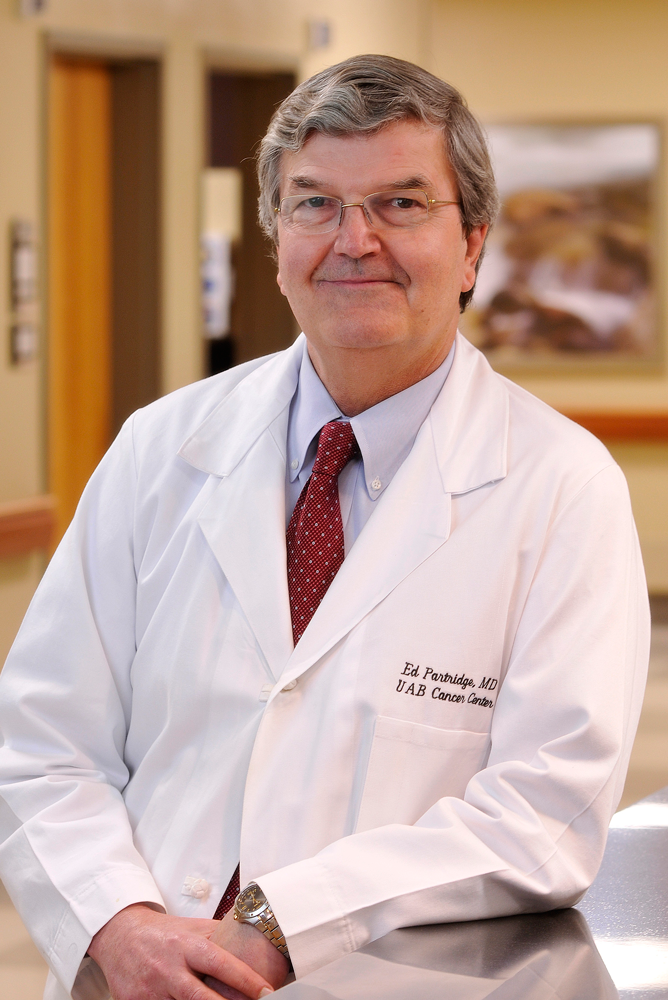 Incorporating community trained volunteers into the healthcare team has been proven to increase the early detection of cancer in minorities in the Black Belt of Alabama. Additionally, these volunteers improve access to high quality cost effective care for cancer patients in this population. This was the central theme of the presentation by Edward E. Partridge, M.D., director of the UAB Comprehensive Cancer Center and the Evalina B. Spencer Endowed Chair in Oncology, at the 2015 S. Rexford Kennamer Distinguished Lecture.
Incorporating community trained volunteers into the healthcare team has been proven to increase the early detection of cancer in minorities in the Black Belt of Alabama. Additionally, these volunteers improve access to high quality cost effective care for cancer patients in this population. This was the central theme of the presentation by Edward E. Partridge, M.D., director of the UAB Comprehensive Cancer Center and the Evalina B. Spencer Endowed Chair in Oncology, at the 2015 S. Rexford Kennamer Distinguished Lecture. Sponsored by the Montgomery Regional Medical Campus of the UAB School of Medicine, the lecture was held on Thursday, March 19 at the Montgomery Country Club with over 140 attendees. Partridge’s topic,“Our Failure to Deliver and What We Can Do About It” explored the reason for unnecessary cancer deaths in Alabama women as a result of failures in early detection and prevention.
Partridge gave an overview of the marked disparity in the overall incidence of and mortality from breast and gynecologic malignancies in the African-American population in the Black Belt. He then outlined the strategies to reduce these differences, including a series of projects in which UAB partnered with other institutions in the south, National Cancer Institute and Centers for Disease Control and Prevention. The initial project funded by the National Cancer Institute was the Deep South Network for Cancer Control, in which over 550 lay community volunteers were trained to intervene with the target populations to undergo screening for breast and cervical cancer.
The subsequent project—coordinated by the UAB Comprehensive Cancer Center and funded by the Centers for Medicare & Medicaid Services—once again utilized community volunteers to serve as navigators for patients diagnosed with cancer at 12 sites in Alabama, Mississippi, Florida and Georgia. The impact of these navigators has been reflected in improved quality of care while also reducing the overall cost. Both of these projects are ongoing.
Partridge, a 1973 graduate of the UAB School of Medicine, has been recognized for his accomplishments in the areas of gynecologic oncology and health care disparities, especially in African-American women and other minorities. He has served as the president of the National Board of the American Cancer Society, and in 2013 received the organization’s prestigious Humanitarian Award for his dedication to improving care in medically underserved populations.
Established in 1978, the Kennamer Distinguished Lecture series brings nationally and internationally recognized leaders in healthcare to Montgomery to interact with the medical, business and political community and discuss their views on important issues in medicine. Through the generosity of the late S. Rexford Kennamer, M.D., a Montgomery native and cardiologist, the lecture series was endowed in his name to insure that it will continue for the benefit of future generations of physicians in Montgomery.